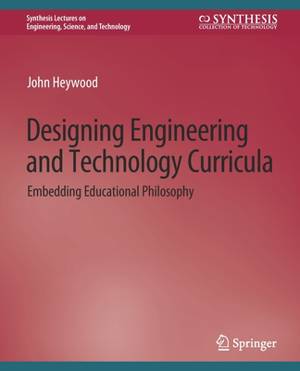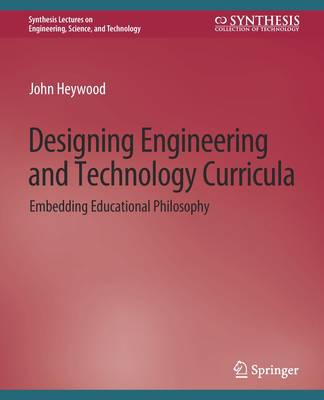
- Afhalen na 1 uur in een winkel met voorraad
- Gratis thuislevering in België vanaf € 30
- Ruim aanbod met 7 miljoen producten
- Afhalen na 1 uur in een winkel met voorraad
- Gratis thuislevering in België vanaf € 30
- Ruim aanbod met 7 miljoen producten
Zoeken
€ 91,95
+ 183 punten
Omschrijving
The intention of this book is to demonstrate that curriculum design is a profoundly philosophical exercise that stems from perceptions of the mission of higher education. Since the curriculum is the formal mechanism through which intended aims are achieved, philosophy has a profound role to play in the determination of aims. It is argued that the curriculum is far more than a list of subjects and syllabi, or that it is the addition, and subtraction, of items from a syllabus, or whether this subject should be added and that subject taken away. This book explores how curricular aims and objectives are developed by re-examining the curriculum of higher education and how it is structured in the light of its increasing costs, rapidly changing technology, and the utilitarian philosophy that currently governs the direction of higher education. It is concluded that higher education should be a preparation for and continuing support for life and work, a consequence of which is that it has to equip graduates with skill in independent learning (and its planning), and reflective practice. A transdisciplinary curriculum with technology at its core is deduced that serves the four realities of the person, the job, technology, and society.
Specificaties
Betrokkenen
- Auteur(s):
- Uitgeverij:
Inhoud
- Aantal bladzijden:
- 141
- Taal:
- Engels
- Reeks:
Eigenschappen
- Productcode (EAN):
- 9783031037528
- Verschijningsdatum:
- 11/01/2022
- Uitvoering:
- Paperback
- Formaat:
- Trade paperback (VS)
- Afmetingen:
- 190 mm x 235 mm
- Gewicht:
- 294 g

Alleen bij Standaard Boekhandel
+ 183 punten op je klantenkaart van Standaard Boekhandel
Beoordelingen
We publiceren alleen reviews die voldoen aan de voorwaarden voor reviews. Bekijk onze voorwaarden voor reviews.







